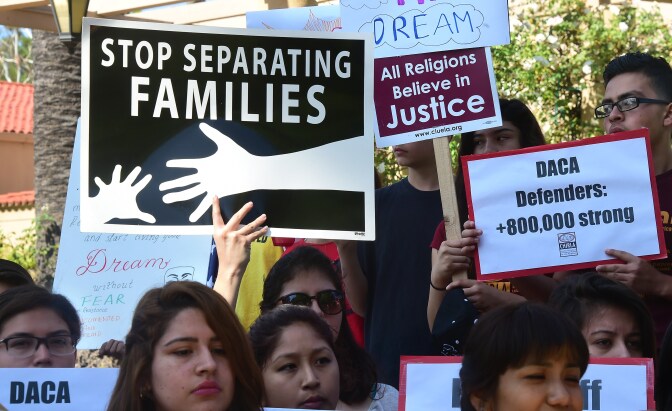This story is free to read because readers choose to support LAist. If you find value in independent local reporting, make a donation to power our newsroom today.
This archival content was originally written for and published on KPCC.org. Keep in mind that links and images may no longer work — and references may be outdated.
DACA uncertainty taking a toll on mental health

When President Trump rescinded the federal program known as Deferred Action for Childhood Arrivals, or DACA, it put an estimated 200,000 so-called Dreamers in a state of flux. If Congress doesn't pass immigration reform, those young people will no longer be legally able to work in the coming years.
That uncertainty is taking a psychological toll, says Henoc Preciado, coordinator of Cal State Fullerton’s Titan Dreamers Resource Center.
“The level of trauma that our undocumented students are facing on a regular basis is concerning,” says Preciado.
Since the election, Preciado said, he’s seen about 75 of the college’s more than 1,000 undocumented students come in experiencing psychological stress. He says there are likely more young people suffering who aren’t coming in at all.
“Very rarely will a student talk about that, right? [Very rarely] will they say ‘I feel this stress because X, Y and Z,’” Preciado said.
Nadereh Pourat is Director of Research at UCLA’s Center for Health Policy Research. She co-authored a 2014 study which surveyed 61 DACA-eligible Latinos. Mental health issues topped the list of health problems reported by surveyees.
Pourat's research was conducted before DACA was rescinded.
“The situation now could be very different, I mean, unfortunately for the worse,” she said.








